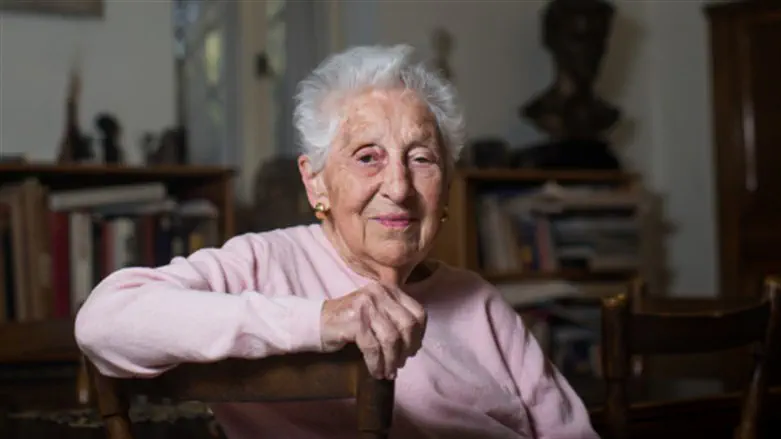
Micha Shalvi, son of Israel Prize winner Prof. Alice Shalvi, who passed away at the age of 96, shares with Galei Zahal her last words before saying goodbye to her family.
"I was privileged to be by her bed and hold her hand for the last 20 hours of her life. The last words my mother said, about eight hours before passing away, were 'Next year in Jerusalem' in her Yekke accent. She was a passionate Zionist," he added.
Prof. Alice Shalvi founded the Israel Women’s Network and was a social activist for many years, she received the Israel Prize in 2007 for her activities in the fields of education, women's status, and well-being. The committee explained their decision to award her the prize by saying that “she was a brave pioneer, had intellectual integrity and long-term vision. In these intertwined fields, she left her special personal imprint."
In the past, she voluntarily took on the management of the "Pelech" girls' school in Jerusalem. The school, which advocates the integration of the religious community within the entire Israeli population, provided its students with a strong Torah education.
During her 15 years of management at the school, innovations were introduced, both in the curricula and teaching methods, as well as in the management - in which the female students were significantly involved.
The Hebrew University is joining in saying goodbye to the members of the faculty, and they paid tribute: "Prof. Shalvi was a senior and active academic faculty member of the Department of English Studies at the Hebrew University for about 40 years. In addition, she was a feminist and an educator with every part of her being, who worked for decades to promote many fields In Israeli society, among them women’s status, Jewish and Zionist education, social equality, and coexistence. For these, Shalvi won the Israel Prize for Lifetime Achievement in 2007.
"The late Prof. Shalvi was not content only with scientific and research work but took it upon herself - often voluntarily - to find practical solutions for the various problems in Israeli society that she sought to correct. From the establishment of the Israel Women’s Network, which for the first time raised the issue of women's status to the public agenda, to her voluntary management of the "Pelech" girls school in Jerusalem, which prides itself in its religious and high-quality education, alongside a democratic education that encourages creative and free-thinking," they wrote.
